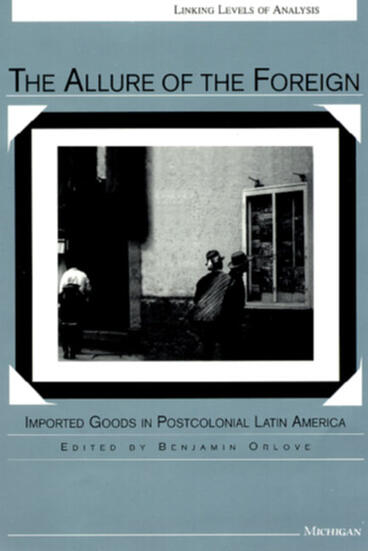The Allure of the Foreign
Imported Goods in Postcolonial Latin America
A rich analysis of the internal social factors that drive the demand for foreign goods
Description
A craze for foreign goods struck Latin Americans in the decades after independence that has continued to the present. People of all classes and backgrounds abandoned traditional, locally made goods that had satisfied needs and wishes for centuries: merchants in Costa Rica replaced wooden benches with sofas; Indians in the remote interior of Bolivia used imported British cottons instead of homemade cloth; wealthy and poor alike in Chile began to drink coffee rather than herbal teas.
The contributors to The Allure of the Foreign trace instances of the demand for imported goods and their patterns of use--as well as the smaller number of cases in which local goods retained their popularity--to investigate why foreign goods became so popular only after the creation of independent Latin American republics. They find that this fascination stemmed from the cultural dilemmas of the new Latin American nations. Caught between a desire to separate themselves from their former European rulers and the wish to join in a new global modernity, Latin Americans developed ways of using European and North American goods to show off newly invented national identities.
With its variety of economic, social, and cultural approaches, this book will appeal to readers in many fields, including consumption studies and economic history as well as anthropology and Latin American studies.
Benjamin S. Orlove is Professor of Anthropology and Ecology in the Division of Environmental Studies, University of California, Davis.
Benjamin S. Orlove is Professor of Anthropology and Ecology in the Division of Environmental Studies, University of California, Davis.

